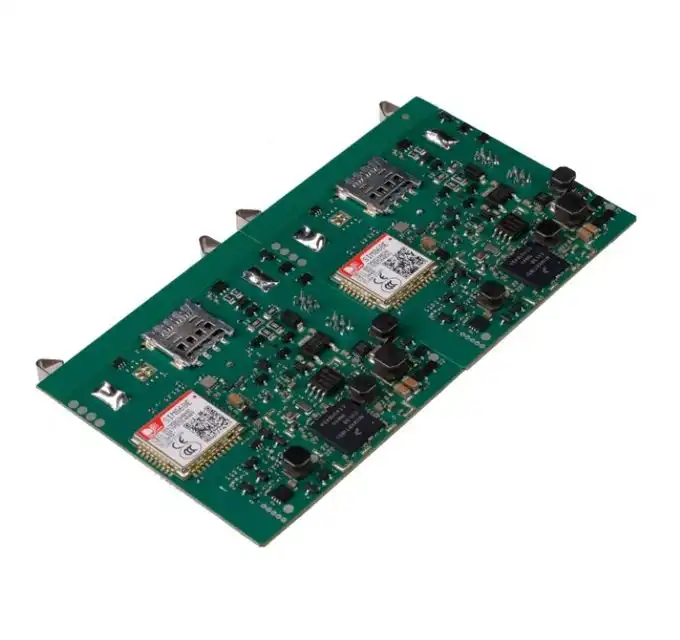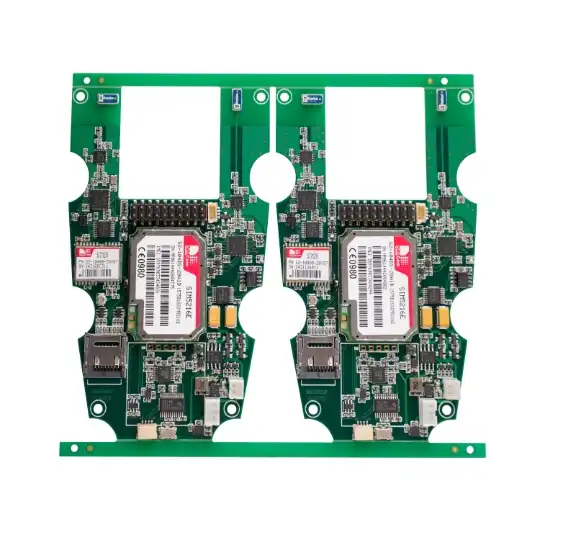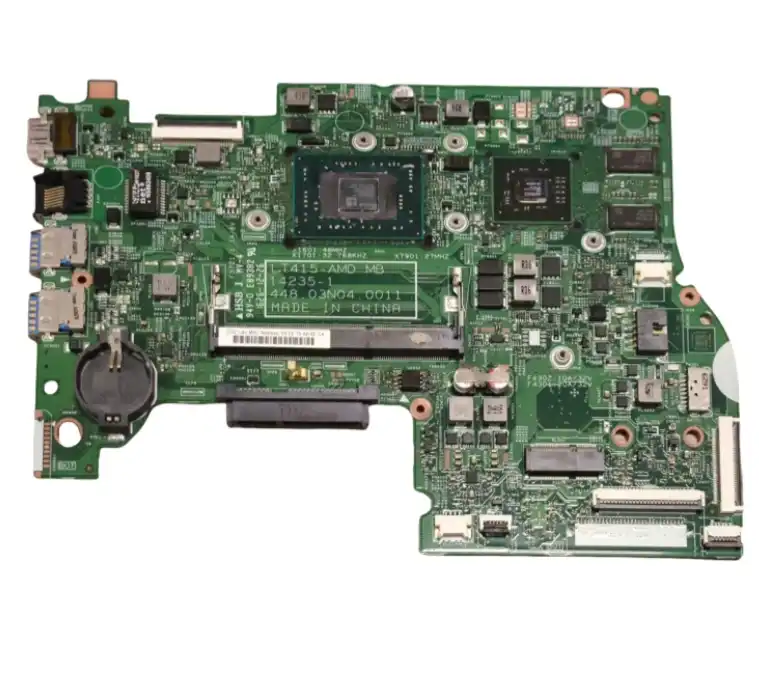Industrial Automation PCB Assembly: Navigating the Core of Modern Manufacturing
Industrial Automation PCB Assembly stands at the heart of modern manufacturing, revolutionizing production processes across diverse sectors. This sophisticated integration of printed circuit boards (PCBs) into automated systems has become the linchpin of efficiency, precision, and scalability in contemporary industrial operations. By seamlessly merging cutting-edge electronics with robotic technologies, Industrial Automation PCB Assembly empowers manufacturers to achieve unprecedented levels of productivity, quality control, and adaptability in an increasingly competitive global marketplace.

The Evolution of PCB Assembly in Industrial Automation
From Manual to Automated: A Paradigm Shift
The journey of PCB assembly in industrial automation has been nothing short of transformative. In the early days of electronics manufacturing, PCB assembly was predominantly a manual process, relying heavily on skilled technicians to place and solder components onto boards. This labor-intensive method was not only time-consuming but also prone to human error, limiting production capacity and consistency.
The advent of automation technologies marked a significant turning point. Surface Mount Technology (SMT) machines, automated optical inspection (AOI) systems, and robotic pick-and-place equipment revolutionized the PCB assembly process. These innovations dramatically increased production speeds, improved accuracy, and allowed for the assembly of increasingly complex circuit designs.
The Rise of Smart Factories
As Industry 4.0 concepts gain traction, PCB assembly has evolved further to become an integral part of smart manufacturing ecosystems. Modern industrial automation PCB assembly lines are equipped with sensors, data analytics capabilities, and interconnected systems that enable real-time monitoring, predictive maintenance, and adaptive production strategies.
This level of integration allows manufacturers to optimize their processes continuously, reduce downtime, and respond swiftly to changes in demand or production requirements. The result is a more agile, efficient, and resilient manufacturing environment that can adapt to market fluctuations and technological advancements with unprecedented speed and precision.
Key Components and Technologies in Industrial Automation PCB Assembly
Advanced Pick-and-Place Machines
At the core of modern PCB assembly are highly sophisticated pick-and-place machines. These robotic marvels can accurately position thousands of components per hour, handling a wide range of component sizes and types with micron-level precision. The latest models incorporate machine vision systems and AI algorithms to optimize component placement, further enhancing speed and accuracy.
Reflow Soldering Technology
Reflow soldering has become the standard method for attaching surface mount components to PCBs in industrial automation settings. Advanced reflow ovens use precisely controlled temperature profiles to ensure optimal solder joint formation across the entire board. This technology enables the reliable assembly of high-density boards with fine-pitch components, critical for many industrial automation applications.
Automated Optical Inspection (AOI) Systems
Quality control is paramount in industrial automation, and AOI systems play a crucial role in ensuring the integrity of assembled PCBs. These systems use high-resolution cameras and sophisticated image processing algorithms to detect defects such as misaligned components, solder bridges, or missing parts. By identifying issues early in the production process, AOI systems help minimize rework and improve overall product quality.
In-Circuit Testing (ICT) and Functional Testing
To guarantee the functionality of assembled PCBs, manufacturers employ a combination of in-circuit testing and functional testing. ICT systems use bed-of-nails fixtures to access test points on the board, verifying electrical connections and component values. Functional testing simulates real-world operating conditions to ensure the PCB performs as intended within the larger industrial automation system.
Challenges and Future Trends in Industrial Automation PCB Assembly
Miniaturization and Increased Complexity
As industrial automation systems become more sophisticated, there is a growing demand for smaller, more densely packed PCBs. This trend towards miniaturization presents significant challenges for PCB assembly processes. Manufacturers must invest in ever more precise equipment and develop new techniques to handle ultra-fine-pitch components and complex board layouts.
Flexibility and Customization
The industrial automation landscape is increasingly driven by the need for customized solutions. PCB assembly lines must be adaptable enough to handle a wide variety of board designs and production volumes efficiently. This requirement is pushing the development of more flexible, modular assembly systems that can be quickly reconfigured to accommodate different product specifications.
Integration of Artificial Intelligence and Machine Learning
The future of industrial automation PCB assembly lies in the intelligent integration of AI and machine learning technologies. These advanced algorithms will enable assembly systems to self-optimize, predict potential issues before they occur, and make real-time adjustments to improve quality and efficiency. As these technologies mature, we can expect to see even higher levels of automation and intelligence in PCB assembly processes.
Sustainability and Environmental Considerations
With increasing global focus on sustainability, the PCB assembly industry is under pressure to reduce its environmental impact. This challenge is driving innovations in energy-efficient equipment, eco-friendly materials, and waste reduction strategies. Future developments in industrial automation PCB assembly will likely emphasize circular economy principles, with greater emphasis on recyclability and reuse of components and materials.
Conclusion
Industrial Automation PCB Assembly continues to be a critical enabler of technological progress across manufacturing sectors. As we navigate the complexities of modern production demands, the ongoing evolution of PCB assembly technologies promises to unlock new levels of efficiency, quality, and innovation. By embracing advanced automation, intelligent systems, and sustainable practices, manufacturers can position themselves at the forefront of the industry, ready to meet the challenges and opportunities of tomorrow's industrial landscape.
17 Years in Industrial PCB Assembly Solutions | Ring PCB
Ring PCB Technology Co., Limited offers comprehensive one-stop PCB and PCBA services, leveraging 17 years of expertise in delivering innovative, reliable, and cost-effective solutions. Our integrated PCBA services include full assembly support, DFM/DFA optimization, and rigorous quality control, ensuring top-tier results for diverse industries. Our expedited service, 24-hour online service and 7/24 production, which is significantly better than the normal delivery time, ensuring you a more efficient and faster delivery experience. Experience unparalleled convenience and reliability with Ring PCB. Contact us at [email protected] to elevate your PCB assembly projects.
References
1. Smith, J. (2023). "The Evolution of Industrial Automation: PCB Assembly's Role in Smart Manufacturing". Journal of Industrial Electronics, 45(3), 287-301.
2. Chen, L., & Johnson, R. (2022). "Advanced Pick-and-Place Technologies in Modern PCB Assembly". Robotics and Automation in Manufacturing, 18(2), 112-128.
3. Patel, A. (2021). "Quality Control Innovations in PCB Assembly for Industrial Applications". International Journal of Electronics Manufacturing, 33(4), 401-415.
4. Rodriguez, M., & Lee, S. (2023). "Artificial Intelligence in PCB Assembly: Current Applications and Future Prospects". IEEE Transactions on Industrial Informatics, 19(7), 3456-3470.
5. Green, T., & Brown, E. (2022). "Sustainable Practices in Industrial PCB Manufacturing and Assembly". Environmental Science and Technology in Electronics, 11(2), 178-192.

Welcome to Ring PCB! Share your inquiry, and receive a tailored quotation!

Ring PCB, your trusted partner for PCB & PCBA Full Turnkey Solutions



